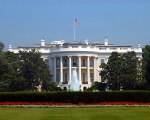In my previous post, I said that it is important to elect members of Congress who have the “will” to make the necessary changes to stop the erosion of the system of checks and balances in the US Constitution.
At this point, we are looking for 435 men and women who wish to serve as Representatives in the US House of Representatives.
What are the qualifications?
Article 1, Section 1, Clauses 1 & 2 of the US Constitution state:
“The House of Representatives shall be composed of members chosen every second year by the people of the several states, and the electors in each state shall have the qualifications requisite for electors of the most numerous branch of the State Legislature.
“No person shall be a Representative who shall not have attained to the age of twenty-five years, and been seven years a citizen of the United States, who shall not, when elected, be an inhabitant of that state in which he shall be chosen.”
To further explain these statements, the writers of the Constitution decided to let the individual states set the qualifications that they desired for the Representatives to represent them, and that anyone who was eligible to vote in state elections could vote for the Representative in their district. Additionally, in an effort to keep the elected official close to the will of the people, they directed that re-election would be every two years. So, every two years, every member of the House of Representatives is up for re-election.
The qualifications for the Representative are:
1. At least 25 years old (This could be challenged by the 26th Amendment, which allows for 18-year-olds to vote)
2. A citizen of the United States for at least 7 years
3. A resident of the state that elects him
This would give the people a Representative who has been a citizen long enough to know the United States’ needs, and who is familiar with the state they represent.
Meeting these qualifications will meet the requirement for election, but the Framers had some additional ideas about the qualities they would recommend that we look for in our elected Representatives.
The Framers felt that it was vital that we have virtuous and moral leaders. One characteristic that they valued is altruism. Altruism can be a difficult concept to define. Pure altruism consists of sacrificing something for someone other than the self (e.g. sacrificing time, energy or possessions) with no expectation of any compensation or benefits, either direct, or indirect (e.g., receiving recognition for the act of giving). See http://en.wikipedia.org/wiki/Altruism for further study, if you wish. This is the definition of pure altruism. The Webster’s Dictionary for Students says, “unselfish interest in others”. At least, we could look for someone who would put our (we the people’s) interests ahead of their own ambition, profit, or interest.
In the Founding Era, George Washington was seen as offering altruistic service to his country. Benjamin Franklin wrote, “To bring that matter nearer home, have we not seen the greatest and most important of our offices, that of general of our armies, executed for eight years together without the smallest salary, by a patriot whom I will not offend by any other praise; and this, through fatigues and distresses, in common with the other brave men, his military friends and companions, and the constant anxieties peculiar to his station?” George Washington was admired for his selfless service to the people of the United States.
People in the Founding Era valued religious belief and morality. In 1787, the Northwest Ordinance was written. This document established the government for the Northwest Territory. It allowed a process for admitting new states to the Union and guaranteed that the new states would have the same rights and privileges as the original thirteen states. In Article 3 of that document, provision was made for the education system: “Religion, morality, and knowledge being necessary to good government and the happiness of mankind, schools and the means of education shall be forever encouraged.” The three important subjects in the schools were religion, morality, and knowledge. The people valued a virtuous life and thought religion would be as important to us in this age as it was to them.
George Washington wrote in his Farewell Address (1796):
“Of all the dispositions and habits which lead to political prosperity, religion and morality are indispensible supports.”
“It is substantially true that virtue or morality is a necessary spring of popular government”.
It also is vital that the person who becomes a Representative has respect for the US Constitution. The person must believe that the US Constitution is the Rule of Law.
They must agree that the Constitution is the supreme law of the land and that no man is above the law. They must have the will to preserve, protect, and defend the Constitution. This is essential to maintaining integrity when governing. I will discuss constitutional supremacy in Article VI.
So, if we were to write a want ad for our ideal Representative, what would it say?
WANTED: US REPRESENTATIVE
Man or Woman, either Republican or Democrat, who is selfless in their service to others and who values religion and morality as evidenced by their behavior. Must respect the US Constitution as the supreme law of the land. Must have the will to preserve, protect, and defend the Constitution of the United States. Must be at least 25 years of age, a US citizen for at least 7 years, and a resident of the state in which they will run for office.
Could this person be YOU??
References:
Findlay, Bruce Allyn and Findlay, Esther Blair. Your Rugged Constitution. Stanford: Stanford University Press, 1950
McClellan, James. Liberty, Order, and Justice. Indianapolis, Liberty Fund, Inc., 2000
Skousen, W. Cleon. The 5000 Year Leap. National Center for Constitutional Studies, 2006
US Constitution
Webster’s Dictionary for Students
Wikipedia



